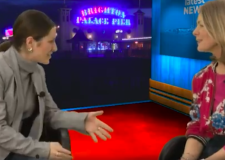Dean Wilson Laing on Disability Discrimination
Samantha Dickinson of local solicitors Dean Wilson LLP answers questions on employment law. This week: Disability Discrimination
Q. How can I avoid disability discrimination during recruitment?
A. Starting as early as the job advertisement, it’s important to think carefully about the language you use as words such as “energetic” could exclude someone who uses a wheelchair or has mobility problems. Think also about the employee specification and the criteria you say are essential for the applicant. Does a candidate truly need a clean driver’s licence for example? If a job does involve lifting or manual handling, consider how much is involved and whether equipment such as hoists could reduce (or even avoid) the need for too much heavy lifting so as to make the role more accessible for more people.
When you are arranging interviews you can ask applicants if they have a disability so that you can consider what adjustments should be made to the interview process. These adjustments could include changing the location of the interview room, allowing more time for written assessments or adjusting the time at which the interview will take place.
It’s important to avoid making stereotypical judgements and assumptions such as presuming a disabled candidate would be physically able to carry out certain aspects of the role or won’t fit in with your work culture and existing staff.
Q. How far do I have to go in terms of making adjustments?
A. You have to make reasonable adjustments when a disabled person is put at a substantial disadvantage by either a physical feature of your premises or a provision, criteria or practice. Your duty is to take reasonable steps as are necessary to avoid the disadvantage. Whether a disadvantage is substantial and what amounts to a reasonable step will vary depending on the disability and what criteria you have applied that an individual says is causing them the disadvantage.
Q. What if I don’t know a candidate is disabled?
A. If you don’t know and can’t reasonably be expected to know, then you are not under a duty to make adjustments. If you know a candidate is disabled you would be wise to make enquiries with them about whether anything in your recruitment process may cause them disadvantage and make suitable adjustments.
Samantha Dickinson, having qualified in 2001, was made a partner in April 2009. She specialises in employment law, but also has expertise in both civil and commercial litigation. She regularly represents clients in both the Employment Tribunal and the county courts and has had a number of notable successes.





















